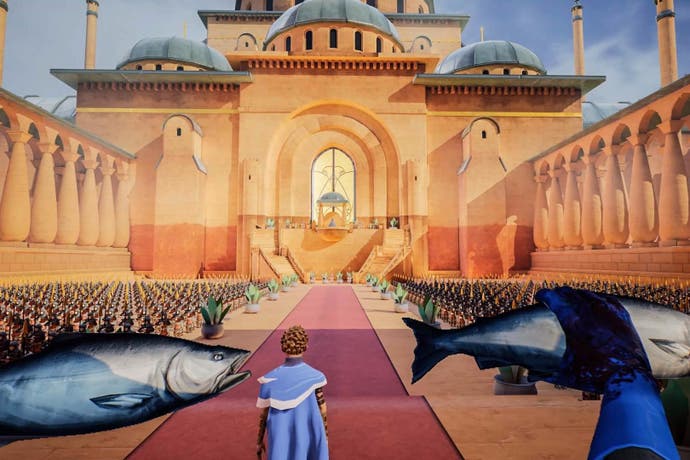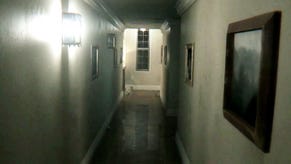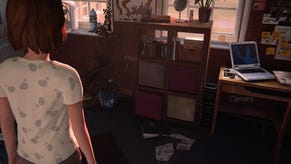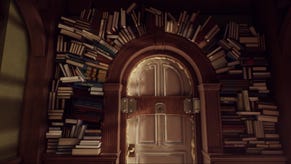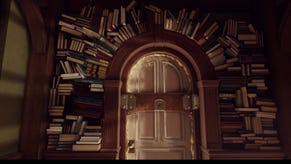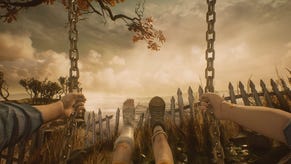What Remains of Edith Finch merges whimsy and woe
The Unfinished Swan dev's follow-up promises plenty of peculiar tales.
What Remains of Edith Finch, the upcoming title by The Unfinished Swan developer Giant Sparrow, is about a young woman exploring her family abode. It's a strange ramshackle concoction predicated on one ludicrous notion: that once a family member dies their room shall remain forever untouched. Naturally this leads to diminishing real estate opportunities, but the Finch lot is nothing if not resourceful, continually building new additions to this most haunted of tombs.
Yet What Remains of Edith Finch isn't a horror story. Not in the conventional sense anyway. Based on the chapter I played at GDC last month, Edith Finch is creepy and unsettling, but it doesn't dwell on the doom and gloom, conflating it instead with a heaping dose of whimsy and wonder. It's more Terry Gilliam than David Lynch, as it were.
Each chapter of What Remains of Edith Finch is a standalone story about a deceased member of the Finch clan. The bit I see is about Edith's recently lost older brother, Lewis, who passed away in his mid 20s.
His story is narrated by his psychiatrist, as she explains in a note to the Finch family that she feels responsible for the troubled young man's death. While she tells his tale, the player acts it out in a clever storytelling technique in which the player simultaneously controls two different versions of Lewis' psychological state.
By day, Lewis works in a cannery, slicing the heads off salmon and tossing them in the chum bucket. This monotonous activity plays out in first-person as Lewis keeps his head down, focusing on the daily grind.
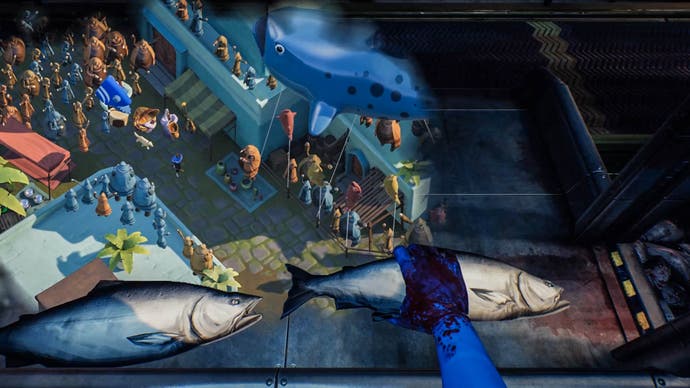
But that's only a part of Lewis. The boring part. The controlled part. The productive part.
Dig deeper and there's another Lewis: one infinitely more intriguing and eerily dangerous. Lewis has substance abuse issues. Or at least he had them. After going clean he initially seemed cured of his debilitating addiction, but this only awakened an even darker part of his troubled psyche. Lewis, more so than most people, is delusional. He imagines a fairy tale fantasy realm where he is king.
This part of Lewis is played out in a hazy thought cloud that takes up about a large part of the screen and is controlled with the left analogue stick while the player simultaneously controls cannery Lewis with the right stick as he continually processes fish along the edges of the frame.
King Lewis is having a ball. He's beloved by all his citizens and a heroic adventurer at that. Sailing the high seas, he slays monsters and steals the hearts of those he pines for (the player can determine Lewis' sexual desires, at least between a Prince or Princess). In this world Lewis is important. Courageous, cherished and admired, King Lewis is everything cannery Lewis is not.
There's only one problem: King Lewis isn't real. And deep down this affluent alter ego knows that he's subject to whim of a despondent assembly line worker. King Lewis refuses to be subjugated to cannery Lewis, so he does what must be done and slays the sick god responsible for all this. And that's the end of Edith's older brother, who she maintains was "so cool."
It's a disturbing tale for sure, and not the only one in the Finch family. Looking at the brood's family tree (also the game's pause menu), we see that the Finch's don't generally have a long life expectancy, though that wasn't always the case.
On the surface, this may resemble an intimate family drama about genetic mental illness. When asked if Edith Finch is a loosely autobiographical account, designer Ian Dallas clarifies that it's not that specific. He's fortunate enough to not be plagued by the same demons as poor Lewis, but he identifies with his delusional creation nevertheless, as he too has a tendency to get sucked into the fictitious fantasies of his mind.
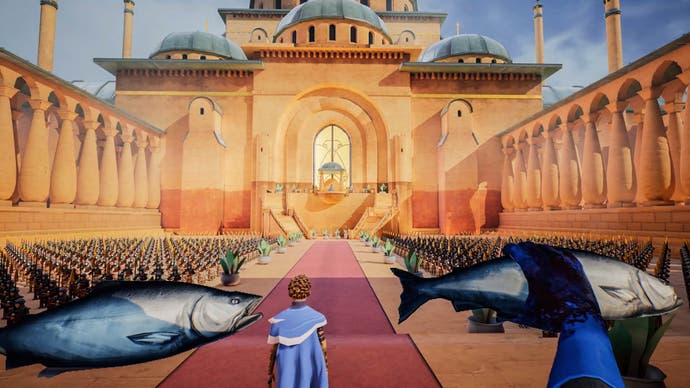
"That's what we get from our phones to some extent, and I think what civilised life in general is about; the departure from the nasty, brutish and short world that we find ourselves in. That we live in a mental version of that inside our own heads," he tells me. "In daily life we make these fictions, and we put a wrapper around the world so we can interact with it. I think that there's a very positive component to that. But it's easy, when things in the outside world are more problematic, to retreat to the place where everything is fine."
Taken this way, Edith Finch may look like a screed against the dangers of the technology and media, about overly withdrawing too deeply into fantasy, be it through video games, films, books, etc. But Dallas doesn't see it in such rudimentary terms. To him, Lewis' escapists tendencies have value. They make him happy, productive, and content... in moderation.
"I think in Lewis's story you could read it as a victory," he tells me. "I mean he's happy in the end. It's just, from your standpoint, do you think that that's ultimately like a good place for him to be or not?"
Ultimately, Lewis' folly is that he's cursed with too much creativity, something Dallas, the creator of The Unfinished Swan before this, can understand. In moderation Lewis' flights of fancy help him out. Indeed, when the dream only obscures half of the screen it's a pleasing diversion from the assembly line. But when it grows to eventually comprise the whole screen, the fantasy flips from whimsy to tragedy.
Intriguingly, What Remains of Edith Finch began as a wholly different project for Dallas. In fact, it wasn't conceived as a narrative adventure at all, but rather as a scuba diving simulator.
"It was originally about what it feels like to be confronted by nature; something that's simultaneously beautiful and overwhelming. And what it sort of morphed into it a number of experiences that evoke the sense of being overwhelmed," Dallas tells me. "In this case Lewis is overwhelmed by his imaginary world. It's about death, but it's also just about this simple idea of things you don't understand overpowering you, which is very weird fiction."
Indeed, if Edith Finch is "a game about the unknown", what's more unknown than the human psyche?
Based on this brief slice of the game, Lewis' story is a lovely tale, equal parts enchanting and foreboding. And mercifully it's self-contained to only take about 15 minutes. What Remains of Edith Finch promises more of this sort of thing, like a condensed season of The Twilight Zone (or more recently Black Mirror). If that doesn't sound "beautiful and overwhelming", I don't know what does.
